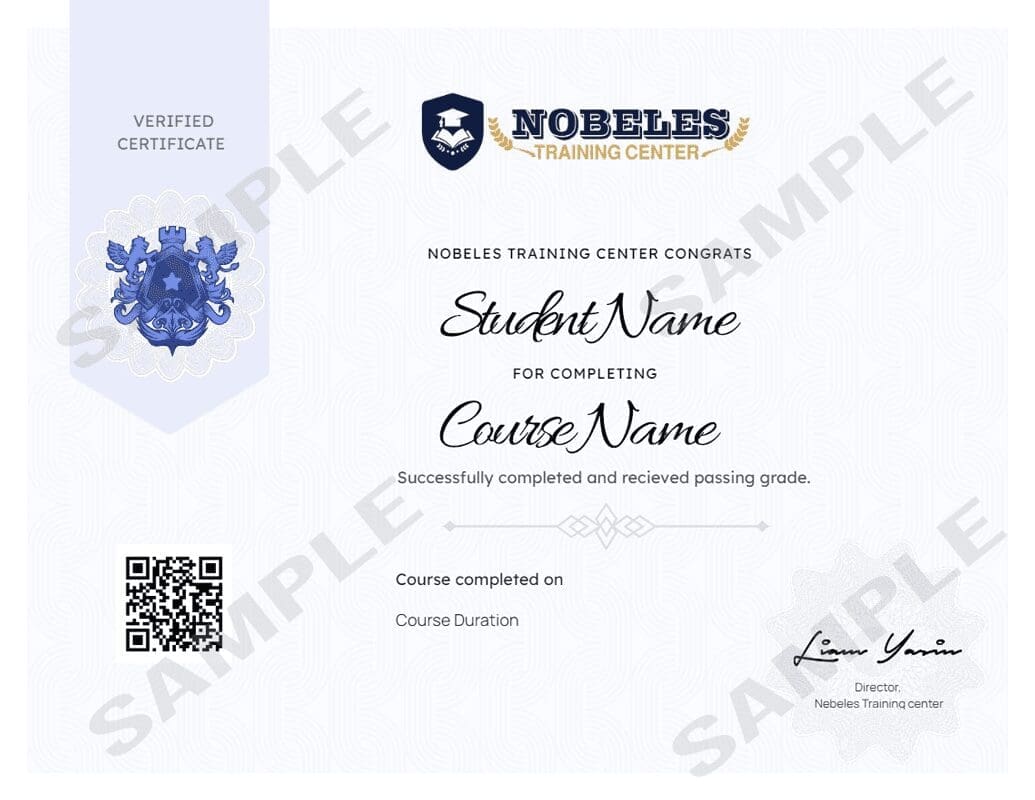Taking control over the emotions that shape our lives can have powerful effects. Emotional intelligence (EI) is the ability to recognize and manage our emotions, behaviors, and impulses, as well as apply this knowledge to the world around us. It encourages self-awareness, internal motivation, and the exploration of diverse perspectives. Through effective and authentic communication, emotional intelligence will create positive relationships within any organization.
Emotional intelligence is a skill that can be developed, in which these skills will help you to maximize your personal and professional success. The Developing Emotional Intelligence course will provide you with the tools to gain control over emotions, navigate challenging situations, and communicate empathetically. With emotional intelligence, you can build a happy and prosperous life.
Curriculum
- 11 Sections
- 11 Lessons
- 8 Hours
- Introduction to Emotional IntelligenceEmotional Intelligence (EI) involves recognizing, understanding, and managing one's emotions while empathizing with others. It enhances communication, decision-making, and relationships by fostering emotional awareness, self-regulation, and social skills.1
- The Components of EIThe components of Emotional Intelligence (EI) are self-awareness, self-regulation, motivation, empathy, and social skills. These elements help individuals manage emotions, navigate relationships, and make informed, empathetic decisions.1
- Tools to Gain ControlTools to gain control of emotional intelligence include mindfulness, active listening, self-reflection, stress management techniques, emotional journaling, and feedback. These practices help regulate emotions, enhance empathy, and improve interpersonal interactions.1
- Verbal Communication SkillsVerbal communication skills involve clear articulation, active listening, emotional awareness, tone control, and empathy. These skills foster understanding, minimize misunderstandings, and enhance relationships by promoting effective, emotionally intelligent interactions.1
- Nonverbal Communication SkillsNonverbal communication skills include facial expressions, body language, eye contact, posture, and gestures. These signals convey emotions, reinforce verbal messages, and enhance emotional intelligence by promoting empathy and understanding in interactions.1
- Managing Relationships With OthersManaging relationships with others involves empathy, active listening, clear communication, conflict resolution, and emotional regulation. These skills foster trust, cooperation, and mutual understanding, enhancing both personal and professional relationships through emotional intelligence.1
- Overcoming ObstaclesOvercoming obstacles in emotional intelligence requires self-awareness, stress management, resilience, adaptability, and seeking feedback. These practices help navigate challenges, manage emotions effectively, and maintain emotional balance during difficult situations.1
- Application to Business PracticesApplying emotional intelligence to business practices enhances leadership, teamwork, conflict resolution, and decision-making. It fosters a positive work environment, improves communication, and boosts employee engagement, leading to increased productivity and organizational success.1
- Benefits of Being Emotionally AwareBeing emotionally aware improves self-regulation, enhances communication, strengthens relationships, reduces stress, and fosters empathy. It leads to better decision-making, increased resilience, and greater overall well-being in personal and professional settings.1
- Making an ImpactMaking an impact with emotional intelligence involves leading with empathy, fostering collaboration, resolving conflicts, and promoting positive work culture. It strengthens relationships, enhances team performance, and drives meaningful, lasting change in organizations.1
- Post TestPost Test1
Nobles Certificate
Nobeles Academy
Mobile Application
Courses you might be interested in
-
11 Lessons
-
0 Lessons
-
11 Lessons
-
0 Lessons






